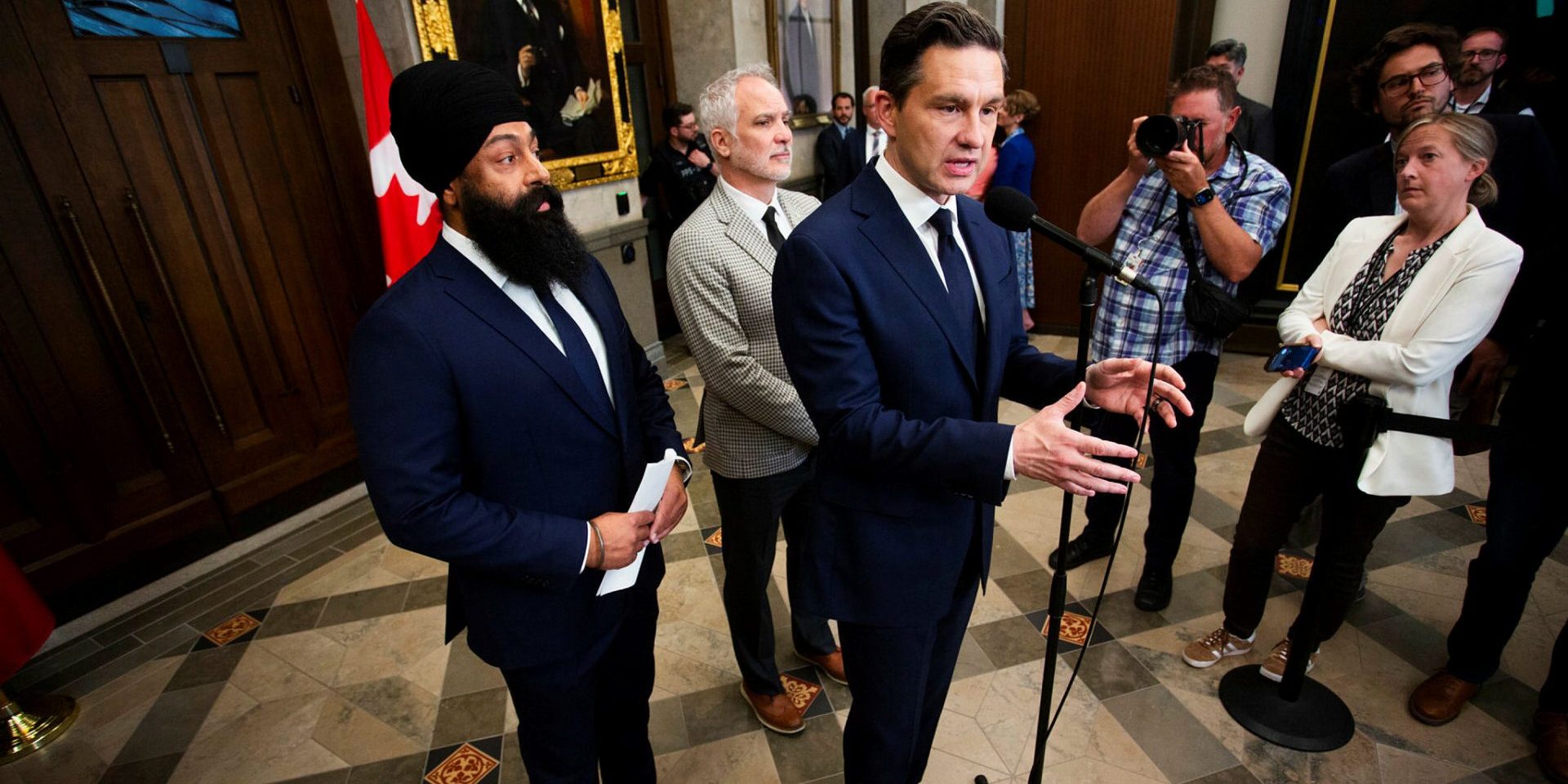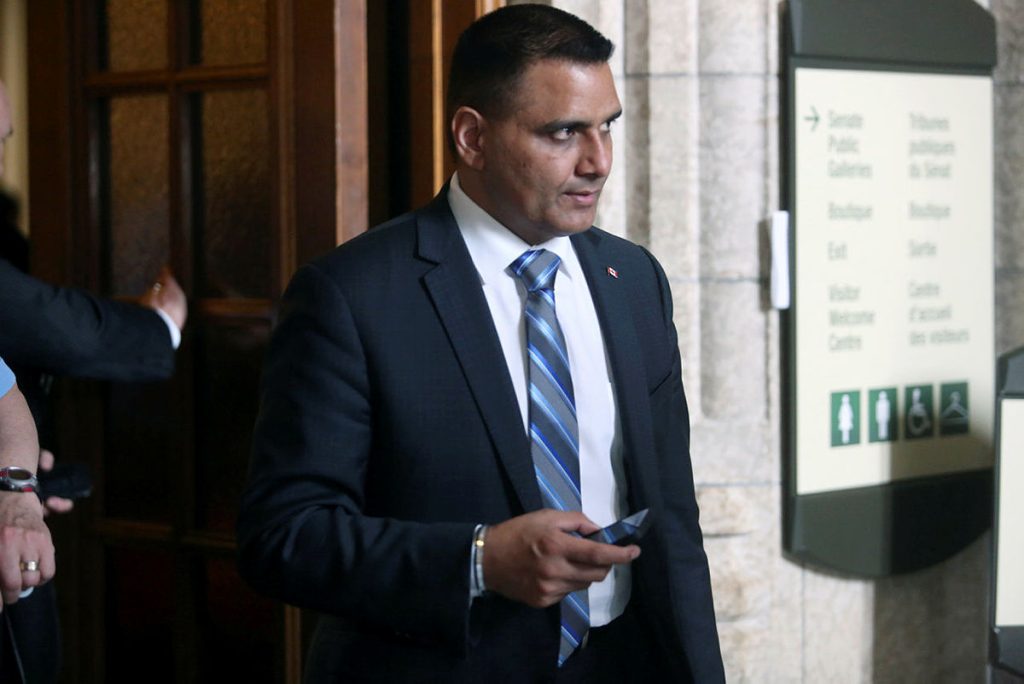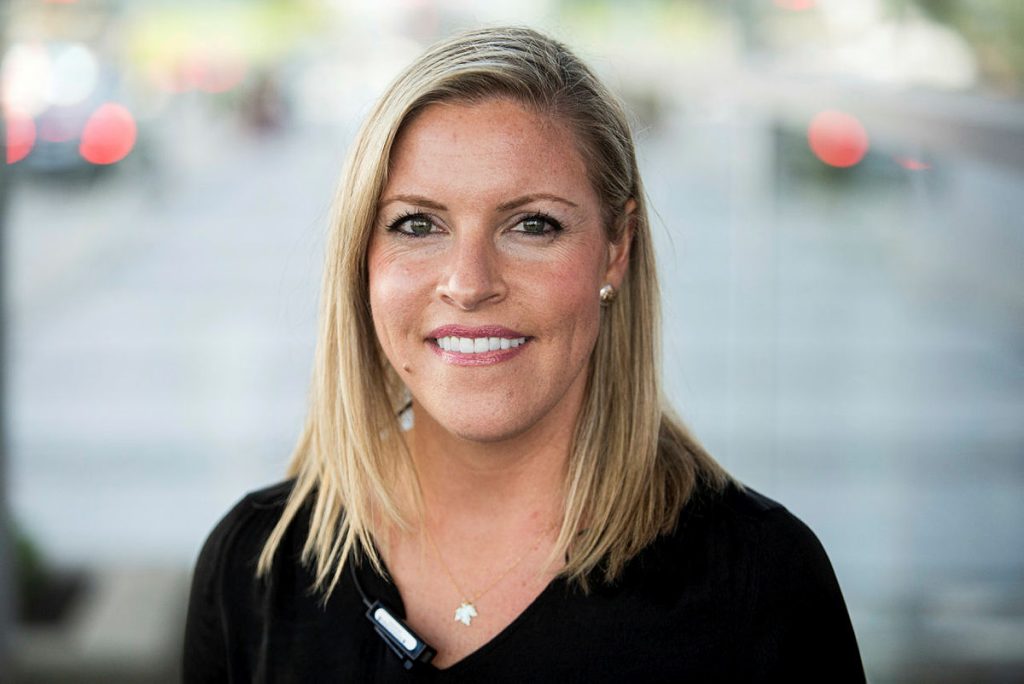Some shut-out Conservative candidates plan to press national councillors over 2025 nominations at upcoming convention

Incumbent Conservative national councillors seeking re-election at the party’s upcoming policy conference should expect to face tough questions from shut-out nomination candidates from the most recent election, say Conservatives.
In interviews with The Hill Times, some excluded candidates said they will press the national councillors from Ontario, British Columbia, and Alberta on why they failed to challenge senior party officials for not following the rules and allowing grassroots members to choose candidates for the 2025 election in dozens of ridings across the country. They also said this will be a critical issue for new national council candidates: what they will do to prevent a repeat in the next election cycle.
“I will raise this [nominations] in advance of the next national council election,” said Murarilal Thapliyal, a Brampton, Ont., lawyer who was shut of the Conservative nomination in Brampton West where the party appointed a candidate without any contested election.
Thapliyal said that over the past 12 years, he has raised approximately $1.5-million for the Conservative Party and recruited 3,000 members in preparation for his nomination bid in the 2025 election cycle—only to be excluded from the contest by the party. He and several other candidates now plan to challenge incumbent national councillors on why they failed to hold senior party officials accountable for not following the rules. They also intend to ask new national council candidates how they will ensure a fair nomination process in future elections.
Many of the excluded candidates said they spent months—some over a year—signing up new members and raising funds for the party, only to learn that a candidate had already been appointed. Some said that they weren’t even granted access to the online portal needed to submit their nomination applications. Several candidates also expressed fear of speaking out publicly, worried that doing so could lead to their disqualification from future election cycles. They said they will share their concerns with convention delegates, and their supporters will ensure not to vote for any national councillors who ignored or failed to address those concern. Some said they prefer not to make their concerns public through the media, but plan to raise them directly with national councillors when approached for support in the upcoming national council elections.

Thapliyal said that the party’s failure to conduct fair nominations contributed to its inability to win the last election. He said that a lack of unity among grassroots members weakened campaign efforts, especially in close ridings that were decided with narrow margins. He added that the party had sufficient time to hold open nominations, but delays pushed the process to the point where the election was called. After that, senior officials exercised their discretion—allowed under the party constitution—to appoint candidates, bypassing the grassroots based nomination election process.
Despite reaching out to national councillors and the party leader to highlight issues with the nomination process, Thapliyal said their concerns were not addressed. He said that when he reached out to the national councillors representing his region, they told him their role was limited to making recommendations to the party, and that they had no authority to intervene in specific nomination contests.
“They say we don’t have power, we don’t have a say, and we can only recommend,” Thapliyal told The Hill Times. “There was no clear answer [from any of the councillors].”
Thapliyal said that he and other delegates will push for future nominations to be held in a timely manner, without unnecessary delays. In cases where a snap election forces the party to appoint candidates, he added, the process should be conducted in consultation with the local riding associations.
The Conservative national council is the party’s highest elected governing body, and at each convention, party members elect 20 represenatives from all regions of the country that oversee all governance issues except for party finances. All national councillors serve on a volunteer basis, and can each serve for up to three consecutive terms. The president of the national council, who is also called the party president, is elected by the council.
The national council has different committees consisting of councillors to deal with specific issues, including the candidate selection. In the current council, the national candidate selection committee is chaired by Kevin Price. Other members include Leona Aglukkaq, Heather Feldbusch, Matthew Conway, Mani Fallon, and Stewart Kiff. The Hill Times reached out to all members of the national candidate selection committee and some other members of the council from different regions of the country for either a comment for this article or an interview, but did not hear back. Conway, however, forwarded The Hill Times‘ comment and interview request to the party president and to the Conservative Party communications office.
In an email to The Hill Times, Sarah Fischer, the Conservative Party’s director of communications, said: “Being a candidate for a political Party is a privilege, not a right,” wrote Fischer. “Any nomination candidate who was disqualified from running for the Conservative Party of Canada was disqualified for legitimate reasons according to our nomination rules and standards.”
D’Arcy Keene, a municipal councillor in Halton Hills, Ont., who was interested in running for the federal Conservative nomination in the Ontario riding of Milton East-Halton Hills South, but was not even allowed access to the online application portal, said that if the party had held a fair nomination contest, the Conservatives would have won the election. The Conservative candidate in that riding, Parm Gill, lost the riding by 21 votes. This riding was seen as being a safe Conservative seat in the lead-up to the April 28 election.
Gill, a former MP and Ontario cabinet minister, and Conservative MP Arpan Khanna (Oxford, Ont.), oversaw the Conservative nominations in Ontario.
Keene said that in the next national council election, he will vote for the national council candidate who will have the best plan to ensure fair nomination for the next election cycle.
“I will always vote for anybody that stands behind having fair and open nominations,” Keene told The Hill Times. “That’s the whole point of the system.”

A senior Conservative familiar with the national council’s operations and the party’s nomination process said the council did not raise significant objections because they were trying to support the leader’s team in selecting what they believed was the strongest slate of candidates for the election. This long-time party insider said that most of the reported complaints came from Ontario, Alberta, and B.C.—putting national councillors from those provinces in the spotlight at the upcoming convention.
This senior Conservative said that in their decades of involvement with the party, they had never seen as many disqualifications as in this election cycle. According to this source, national councillors could have—and should have—challenged the party’s decisions by asking why so many candidates were being disallowed. They could have insisted that senior party officials respect the rules and allow grassroots members to choose their candidates.
“They could have done more,” said the senior party member.
For more than a year, the Conservatives held a double-digit lead over the governing Liberals, with projections suggesting Pierre Poilievre’s Conservatives could win over 200 seats in the House of Commons. At that time, the Liberals were bracing for a third or even fourth-place finish. That momentum—based primarily on cost-of-living issues that Canadians were blaming on the federal government—sparked intense interest from grassroots Conservatives, as many saw a nomination as an almost a guaranteed seat in the House. The party saw record-breaking fundraising as a result.
But the political landscape changed dramatically in early January when then-prime minister Justin Trudeau announced his exit and a trade war—triggered by United States President Donald Trump’s threats of a 25-per-cent tariff and even to annex Canada—rallied public support behind the Liberals. After winning the Liberal leadership, Prime Minister Mark Carney (Nepean, Ont.) capitalized on the momentum by calling an early election in March and won a strong minority government, falling just three seats short of a majority. Poilievre lost his own seat in the April 28 election.
The 20-member Conservative national council will meet in Ottawa on June 14 for its quarterly meeting, where they will discuss, among other issues, the timing and location of the next policy convention. The council had initially agreed in January to hold the convention in the spring of 2026 in Ottawa, assuming the election would take place in October. So, given the surprise early election and the party’s loss, some are now calling for an earlier convention—possibly as soon as this fall—to head off efforts by Poilievre’s critics to organize against him before his mandatory leadership review, which the party constitution requires after an electoral defeat.

In the meantime, Poilievre is expected to run in a yet-to-be-called byelection in the rural Alberta riding of Battle River-Crowfoot, one of the safest Conservative ridings in the country, where incumbent Conservative MP Damien Kurek has agreed to step down. Poilievre is expected to return to the House by the fall.
Val Neekman, a former riding association president in Waterloo, Ont., who was also shut out of the nomination process, said he cancelled his party membership in protest after the party appointed a parachute candidate without a local contest. The Conservatives appointed Waseem Botros as the Conservative candidate in Waterloo. Botros ran unsuccessfully in the last national council election. Neekman said he contacted all national councillors and some area MPs, but received no response. He believes delegates should press national councillors on why they remained silent in the face of media reports and direct appeals from excluded candidates about nomination irregularities.
In Neekman’s view, the only way to ensure fairness is for Elections Canada to take over the nomination process.
“It should be an issue for Elections Canada,” he said who ran as an independent in the last election. “Democracy starts from the grassroots, starts from the neighbourhoods.”
Some other excluded candidates, including Gurminder Gill in Brampton North-Caledon, Ont.; Babbu Saran in Brampton Centre, Ont.; Ranbir Parmar in Calgary McKnight, Alta.; and Keshav Mandadi in Mississauga East-Cooksville, Ont., left the Conservative Party in protest. Minesh Patel, another shut out candidate in Calgary Skyview, Alta., ran as an independent in the April 28 election.
Meanwhile, a second senior Conservative said that officials at the top are already expecting grilling from rank-and-file members to raise tough questions about questionable nominations process in the last election cycle.
“The national councillors are going to get a whole bunch of crap [about nominations],” said one senior Conservatives. “They [excluded candidates] are going to come at national councillors.”
arana@hilltimes.com
The Hill Times






 LICENSING
LICENSING PODCAST
PODCAST ALERTS
ALERTS













